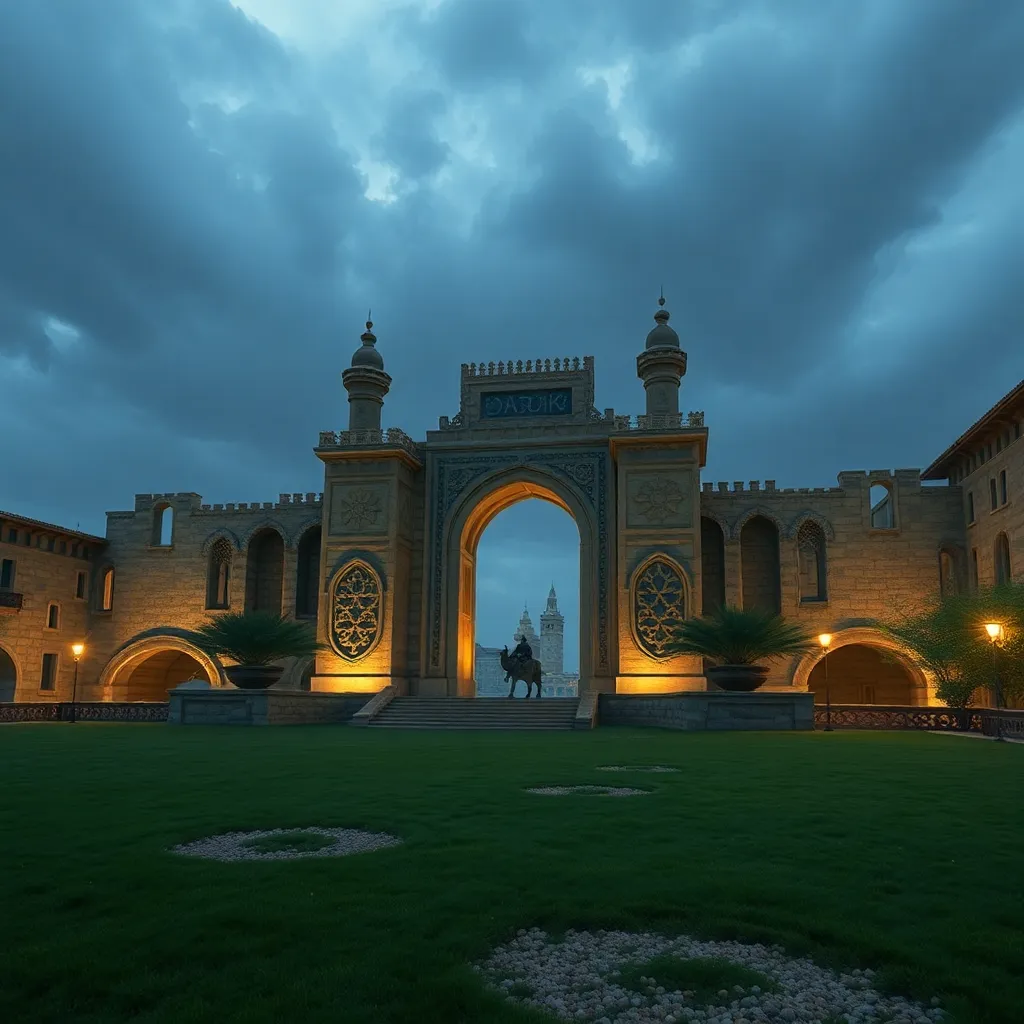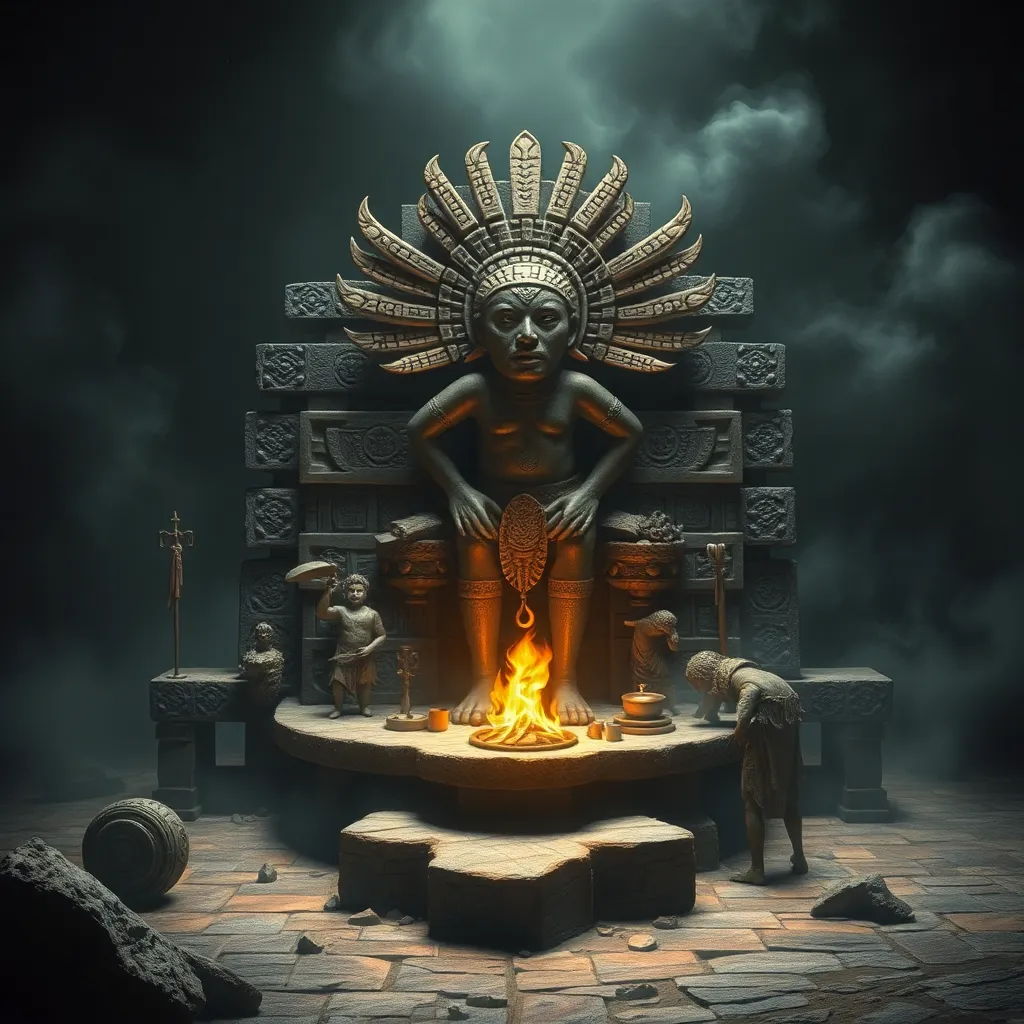The Baku’s Evolution: From Ancient Tales to Modern Media
I. Introduction
Baku, the capital of Azerbaijan, is a city that has witnessed a rich tapestry of history, culture, and transformation. With its unique geographical position along the Caspian Sea, Baku has served as a crossroads of civilizations, making it a historically significant urban center. This article aims to explore the evolution of Baku, tracing its journey from ancient narratives steeped in mythology to contemporary representations in global media.
II. Ancient Origins of Baku
A. Historical background and archaeological findings
The origins of Baku date back to ancient times, with archaeological evidence suggesting human settlement as far back as the Stone Age. Excavations have uncovered remnants of ancient structures, such as the Maiden Tower, which stands as a testament to the city’s long history. The area was known for its natural gas resources, which have been utilized since antiquity.
B. Myths and legends associated with Baku in antiquity
Baku is steeped in myths and legends, one of which involves the eternal flame that is said to burn in the area due to the natural gas seeping through the earth. Ancient Zoroastrian fire worshippers revered this phenomenon, which contributed to the city’s mystique. The tales of fire and the mythical creatures associated with it have been passed down through generations, enriching the cultural narrative of Baku.
C. The role of Baku in regional trade and culture
Baku’s strategic location made it a vital hub for trade, linking the East with the West. The city became part of the Silk Road, facilitating the exchange of goods, ideas, and cultures. This historical significance has left an indelible mark on Baku’s cultural landscape, influencing its architecture, cuisine, and art.
III. The Cultural Heritage of Baku
A. Influences from Persian, Ottoman, and Russian empires
Over centuries, Baku has been influenced by various empires, including the Persian, Ottoman, and Russian empires. Each of these cultures has contributed to the city’s rich heritage, visible in its diverse architectural styles, culinary traditions, and festivals. The fusion of these influences has created a unique cultural mosaic that defines modern Baku.
B. Preservation of traditional art, architecture, and crafts
The preservation of traditional art forms, such as carpet weaving and miniature painting, remains a priority in Baku. The city is home to numerous museums and cultural centers dedicated to showcasing these crafts, ensuring that the artistic legacy is passed on to future generations.
C. The significance of the Flame Towers and other landmarks
The Flame Towers, representing modern Baku’s skyline, symbolize the city’s connection to its ancient past of fire worship. Other landmarks, such as the Old City (Icherisheher) and the Palace of the Shirvanshahs, reflect Baku’s historical depth and architectural beauty. These sites attract tourists and scholars alike, reinforcing the city’s status as a cultural capital.
IV. Baku in Literature and Folklore
A. Prominent literary works featuring Baku
Baku has inspired numerous literary works, both in Azerbaijani and foreign literature. Authors like Mirza Alakbar Sabir and Nobel laureate Joseph Brodsky have written about the city, capturing its essence through poetry and prose. The city serves as a backdrop for stories that explore themes of identity, culture, and history.
B. Folktales and oral traditions that shape the city’s identity
The rich oral traditions of Baku include folktales that are passed down through generations. These stories often feature local heroes, historical events, and moral lessons, playing a crucial role in shaping the city’s cultural identity. They serve as a means of preserving history and instilling a sense of pride among residents.
C. The impact of storytelling on Baku’s cultural memory
Storytelling in Baku is not merely a form of entertainment but a vital aspect of cultural memory. The narratives that emerge from the city reflect the resilience and spirit of its people, contributing to a collective identity that resonates with both locals and visitors. This oral heritage is celebrated through festivals and cultural events.
V. Baku’s Transition in the 20th Century
A. The effects of the Soviet era on the city’s development
The 20th century marked a significant transition for Baku, particularly during the Soviet era. The city underwent rapid industrialization, which transformed its economy and demographics. While this brought development, it also led to challenges, including environmental issues and social changes.
B. Key events and figures that shaped modern Baku
Several key figures and events have played a crucial role in shaping modern Baku. Notable leaders in arts, politics, and science emerged during this period, contributing to the city’s cultural and intellectual landscape. The independence of Azerbaijan in 1991 further solidified Baku’s role as a capital of a sovereign nation.
C. Changes in social and political dynamics
Post-independence, Baku has experienced significant changes in its social and political dynamics. The city has embraced globalization while remaining deeply rooted in its traditions. This duality is reflected in its vibrant cultural scene, which continues to evolve and respond to contemporary issues.
VI. Modern Media Representations of Baku
A. Baku in film, television, and music
In recent years, Baku has gained prominence in modern media, featuring prominently in films, television shows, and music videos. The city’s stunning architecture and vibrant atmosphere provide a captivating backdrop for various media projects, showcasing its beauty to a global audience.
B. The role of digital media and social platforms in promoting Baku
Digital media and social platforms have become powerful tools in promoting Baku as a travel destination. Influencers and content creators share their experiences, highlighting the city’s attractions, cuisine, and culture. This has led to increased interest in Baku among tourists and expatriates.
C. Case studies of notable media projects featuring Baku
Several notable projects have showcased Baku, including the Eurovision Song Contest held in 2012 and the Formula 1 Grand Prix since 2016. These events have not only elevated Baku’s global profile but have also showcased its capabilities as a host for international events.
VII. Baku as a Global City
A. The impact of international events (e.g., Eurovision, Formula 1)
Baku’s hosting of international events has solidified its status as a global city. The success of events like Eurovision and Formula 1 has attracted international attention, showcasing Baku’s hospitality and organizational capabilities. Such events have also boosted local tourism and the economy.
B. Baku’s role in global tourism and cultural exchange
As a global city, Baku has become a melting pot of cultures, attracting tourists from around the world. Its diverse offerings, from historical sites to modern amenities, promote cultural exchange and understanding. Baku’s commitment to preserving its heritage while embracing modernity appeals to a wide range of visitors.
C. Future prospects for Baku in the global media landscape
Looking ahead, Baku is poised to continue its evolution in the global media landscape. With ongoing investments in infrastructure and cultural initiatives, the city is likely to attract even more international attention. The blend of history and modernity will remain a key factor in its appeal.
VIII. Conclusion
Baku’s evolution from ancient tales to modern media reflects a rich tapestry of history, culture, and identity. The city has transformed while preserving its cultural heritage, making it a unique destination in the world. As Baku continues to navigate its place in the global landscape, it remains a testament to the enduring power of storytelling and cultural memory.
In conclusion, the ongoing narrative of B



